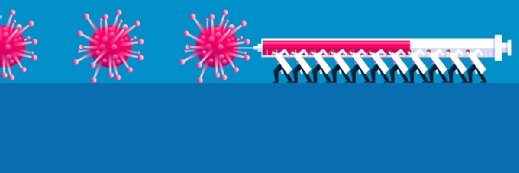
Getty Images
Artificial Intelligence Powers Rapid COVID-19 Antibody Test
University of Utah researchers have developed a fast, easy-to-administer COVID-19 antibody test powered by artificial intelligence.
The University of Utah (the U) has partnered with ARUP Laboratories and Techcyte Inc. to develop NanoSpot.AI, a quick and simple COVID-19 antibody test fueled by artificial intelligence.
NanoSpot.AI is a less than five-minute test, and researchers estimate it to be significantly less expensive to manufacture than other COVID-19 antibody tests. With this more affordable option, it may be possible to extend NanoSpot.AI around the world.
NanoSpot.AI is performed on a spot of blood obtained through a finger prick using a microcollection tube. Droplets of blood are then placed on three spots on a ready-to-use, synthetic, embossed card. One of the spots displays the test result, while the other two spots are positive and negative controls for the test. Individuals then receive their test results on their cellphones.
The team believes the test could be used around the world to help prioritize who should receive COVID-19 vaccinations, or to quickly and easily detect whether individuals have some immunity against COVID-19 for travel or immigration purposes. Clinical studies validating NanoSpot.AI are currently underway.
“Other antibody tests are available and are very good, but it takes time to get test results back and they’re relatively expensive,” said Hans Haecker, MD, PhD, a codeveloper of NanoSpot.AI and a professor in the U Pathology Department Division of Microbiology and Immunology.
“Based on what we know so far, we believe NanoSpot.AI checks all the boxes. Because it is simple, fast, and very affordable, it can be done anywhere without specialized equipment, creating the potential for us to have an impact on human health around the world.”
After the test is administered, researchers use AI to analyze and confirm test results.
“As a national reference laboratory, ARUP has a wide view of laboratory diagnostics,” said Mark Astill, ARUP director of Research and Development. “The expertise and experience we bring enabled what may be the first instance of combining seemingly disparate elements to produce a rapid, economical, QR-code-curated, consistent, point-of-care result.”
All NanoSpot.AI test components are provided in a self-contained kit. Antibodies against COVID-19 are quickly visible because the blood spot begins to separate within seconds when the test result is positive.
When researchers mix blood spots collected for the NanoSpot.AI test with a pre-dispensed, dried reagent on the test card, the blood spot on the circle displaying the test result shows agglutination that indicates COVID-19 antibodies are present.
To ensure accurate results, the person administering the test uses a mobile phone to take a photograph of the card, which is then transmitted to Techcyte for analysis using an AI-based image analysis tool.
“Our platform breaks each blood spot into thousands of features that the AI uses to statistically determine which specimens are positive for SARS-CoV-2 antibodies,” said Ben Cahoon, Techcyte CEO.
Researchers believe organizations can easily adapt the assay to test for antibodies to COVID-19 variants as new mutations emerge. Providers can view NanoSpot.AI as a platform because the test and the AI can be developed to test for antibodies against other viruses.
“This has been an extremely effective partnership and collaboration between the U, ARUP and Techcyte, demonstrating how university technology can be fast-tracked by collaborating with the right partners,” said Aaron Duffy, technology manager at the U’s Partners for Innovation, Ventures, Outreach & Technology (PIVOT) Center.
Researchers have previously leveraged artificial intelligence to improve testing for COVID-19 and its new mutations. A study published in Scientific Reports showed that an AI method could help combat emerging COVID-19 mutations by identifying the best potential vaccines to treat the virus.
“This AI framework, applied to the specifics of this virus, can provide vaccine candidates within seconds and move them to clinical trials quickly to achieve preventive medical therapies without compromising safety,” said Paul Bogdan, associate professor of electrical and computer engineering at USC Viterbi and corresponding author of the study.
“Moreover, this can be adapted to help us stay ahead of the coronavirus as it mutates around the world.”





